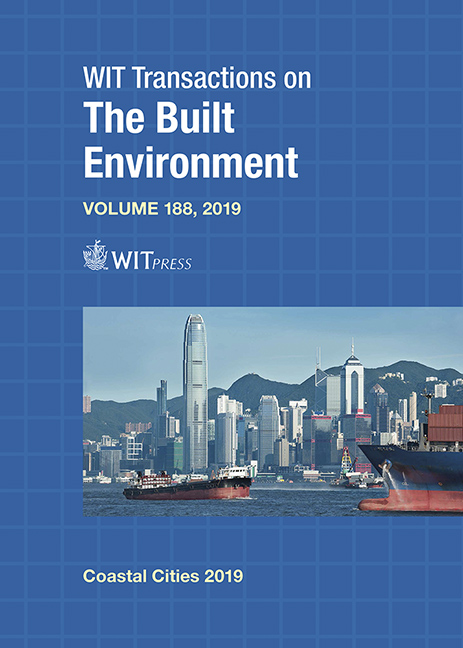PRECARIOUS SETTLEMENTS IN MEXICAN COASTAL CITIES: THE CASE OF CIUDAD DEL CARMEN, CAMPECHE, MEXICO
Price
Free (open access)
Transaction
Volume
188
Pages
13
Page Range
61 - 73
Published
2019
Paper DOI
10.2495/CC190061
Copyright
WIT Press
Author(s)
JOEL F. AUDEFROY, EDITH MONTESINOS PEDRO
Abstract
The purpose of this paper is to present a diagnosis of vulnerability and risk in precarious settlements located in Ciudad del Carmen, Campeche. The methodology used is an analysis of the studied zones, based on physical-environmental determinants of at-risk human settlements. These are: social, economic and physical vulnerability of housing, the various risks and threats they face (such as flooding, sea erosion, hurricanes, pollution), as well as the factors involved in their resilience and adaptation. The diagnostic methodology involved the integration of systemic territorial and social analysis, to illustrate the operating and functional characteristics of the territory’s socio-spatial dynamics, in order to explain multivariate phenomena through time and space. This methodological process is applied in an effort to define and question the factors that affect how the system functions, recognizing in all of this the contextual influence of location, city, region and climate. What is interesting about this study is precisely the variability of the humid tropical climate surrounding the irregular, precarious settlements examined in this study.
Keywords
Ciudad del Carmen, disaster mitigation, environmental change, Mexico, settlements, coastal cities, vulnerability, risk, risk study, adaptation, climate variability





